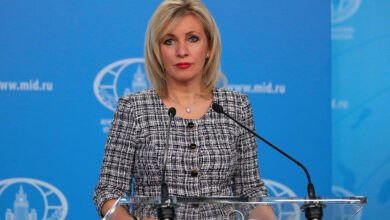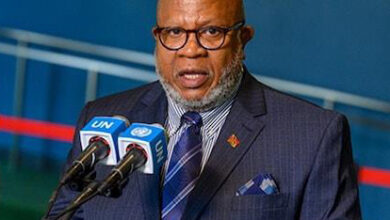Israeli President Reuven Rivlin reaffirms commitment to fight terror
With the battlefields of today changing, terrorism has become an omni-present threat from the physical world to the cyber world. No longer is cyber warfare only in the realms of science fiction, it is a serious strategic challenge, said Israeli President Reuven Rivlin, offering his country’s expertise to India in all sectors to build a safer world.
Israel’s readiness to raise cooperation in the defence and security sectors was a message reiterated at various forums throughout the country by President Rivlin, during the course of an eight-day state visit to India. The state visit by an Israeli President is the first in nearly 20 years, taking place in reciprocity to the October 2015 visit by Indian President Pranab Mukherjee, and marks 25 years of the establishment of bilateral diplomatic relations and the growing partnership between India and Israel.
Defence and security linkages between the two countries are not discussed very openly beyond stating that the ties are “close and vast.” Israel today is among the top five suppliers of defence and security-related equipment to India.
“There is positive and growing cooperation between our countries in many areas of defence and security. We also face a common challenge in fighting terrorism and radicalism. I am here today to affirm our commitment to the fight against global terrorism. We are here today, to carry the great potential of this partnership into reality,” President Rivlin said in an address organised by the ‘Observer Research Foundation’ and Confederation of Indian Industry, to a gathering comprising diplomats, former diplomats, policy-makers and academia.
“The excellent relations between our countries are based upon strong foundations, two states which share common values, and are first and foremost, thriving democracies,” the Israeli President said.
President Rivlin said “ Israel wants to play a part in the “Four Colours Revolution” that Prime Minister Modi has set as India’s national goal, that brings together the colours of the Indian flag: Saffron for solar power, Green for agriculture, White for dairy produce, and Blue for water”.
Reiterating Israel’s commitment to “make in India and make with India,” President Rivlin hoped his visit would pave the way for a full Free Trade Agreement (FTA) between the two countries.
Trade between India and Israel, which currently stands at under $6 billion, needs to be tripled to realize the true potential of partnership between the two countries, said Rita Teaotia, Secretary, Department of Commerce, Ministry of Commerce & Industry, at the ‘India-Israel Business Forum’ on the theme ‘Opportunities for collaboration between Indian and Israeli companies’ organized by FICCI in partnership with the Embassy of Israel in India.
Speaking after their delegation-level meeting, Prime Minister Narendra Modi outlined the primary focus areas of the India-Israel relationship.
“Our engagement is multi-dimensional and wide-ranging. We are partnering in enhancing agricultural productivity and efficiency; boosting research and innovation linkages; employing applications of science and technology; forging strong trade links and investment ties; building defence ties to secure our people; enhancing people to people ties through greater cultural and tourism linkages and promoting educational exchanges.”
President Rivlin headed a large business and academic delegation, including 15 heads of Israeli universities as well as Israeli companies, some of which are already active and successful in India. The visit focused on strengthening the growing economic ties between India and Israel in the fields of agriculture and water, and promoting academic cooperation pursuing the MOU signed by President Mukherjee in Israel in 2015.
Israel’s advances and expertise in agriculture and its expertise in micro-irrigation in drought-prone areas and water management hold important lessons for India. Water conservation and management, and collaboration in scientific research and development are two areas of priority engagement between the two countries.
Indian and Israeli companies also work together in high-technology manufacturing, and services sectors, the Indian Prime Minister said, while there is a “strong and growing partnership to secure our societies. Our people are constantly threatened by forces of terrorism and extremism. We recognize that terrorism is a global challenge, knows no boundaries and has extensive links with other forms of organized crime. Regrettably, one of the countries of its origin and spread is in India’s neighbourhood. We agreed that the international community must act with resolve and determination against terror networks and States that harbour them. Failure to act and silence of speech only encourages the terrorists,” Mr Modi said, again placing the spotlight on Pakistan’s involvement in abetting terrorism.
“We agreed to intensify our cooperation to combat the forces of extremism and radicalization that threaten all peace-loving nations. We also prioritized practical and specific engagement such as in the cyber domain. We noted the strength of our growing defence partnership. And, agreed on the need to make it more broad-based through production and manufacturing partnerships,” Mr Modi said. “As fellow democracies, our people are our biggest strength and the biggest beneficiaries of a strong India-Israel partnership.” During his visit, President Rivlin also travelled to Mumbai, Karnal, Chandigarh and Agra, to see the Taj Mahal.
Daniel Carmon, Ambassador of Israel in India, said: “President Rivlin’s visit to India is an important event which signifies the growing and sustainable relations between our two countries. It is part of a historical process, and the next chapter is enhancing cooperation on agriculture, water and education; from defence and security to food security.”
Mr. Shraga Brosh, President, Manufacturers Association of Israel (MAI), said MAI and FICCI had decided on a target of tripling the two-way trade turnover for which he suggested forging of joint venture for operations in India and in third countries. The focus, he said, should be on agriculture, homeland security and energy.
Mr. Harshavardhan Neotia, President, FICCI, pointed out that the potential in trade was immense and while there wa talk of an FTA, FICCI is in favour of an India-Israel Bilateral Innovation Treaty that promotes businesses linked to innovation.
“We in FICCI are firmly of the view that current global geopolitical trends make it ideal for India and Israel to strategize on a Defence and Homeland Security collaboration with a larger role for Indian private sector in co-production and co-development,” he said, while suggesting that the Israeli defence industry could consider co-producing defence equipment in India as the FDI limits in this sector have been relaxed.





